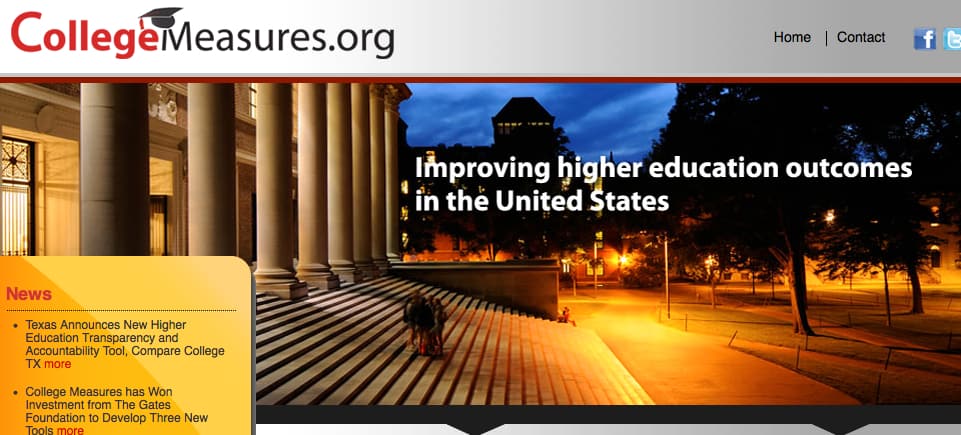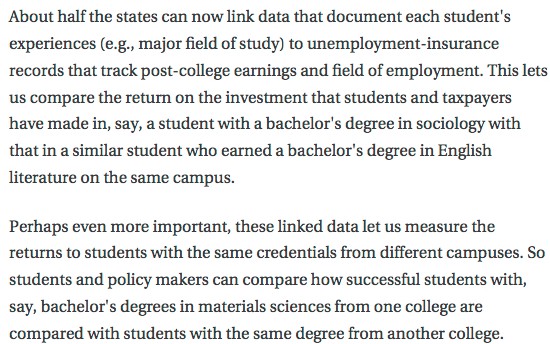
With out-of-control college costs a reality, it’s not surprising that parents and their children are especially interested in colleges that are springboards to good-paying jobs.
Unfortunately, it’s hard to know what those schools are.
Meaningless Grad Salary Data
As I’ve mentioned before, the job statistics that colleges and universities share with prospective students are laughably misleading.
Low percentages of graduates participate in these employment/grad school surveys and those that do are more likely 
What’s frustrating about the lack of meaningful information is that it doesn’t have to be that way. It is technologically possible for the federal government to create a national database that would include the average starting salary of students attending any school in the country along with a salary breakdown by academic majors.
As you can read in the following college blog post that I wrote in 2012, higher-ed lobbyists, including those representing private colleges and universities, successfully lobbied Congress years ago to forbid the federal government from creating a national database:
Ending Stonewalling on College Grad Salaries
The stonewalling could be ending on the national level as college costs and debt becomes an ever growing issue. In a hopeful move by a bipartisan group of senator introduced a bill that would end the censoring of this information.
CollegeMeasures.org
In the meantime, with the federal government’s hands tied, a nonprofit called CollegeMeasures.org has been working hard to help states provide salary data to families on the state level. CollegeMeasures now has accurate, verifiable data on overall salaries of graduates of individual schools in six states, as well as broken down by majors. Here are the states where you can find this valuable salary information:
What You Can Find at CollegeMeasures.org
With this data, you can now find out, for instance, what the average salaries that a new biology major or a petroleum engineer at the University of Texas at Austin is earning. You can discover that business majors at the University of Richmond are earning more than grads of all other Virginia schools including the University of Virginia.
Taken as a whole, the data from the six states show that strong earnings are not tied just to the most prestigious campuses in a state. In Colorado, for instance, the average first-year earnings of graduates of Regis University ($53,705), the University of Denver ($39,094) and the University of Colorado-Denver ($43,804) were greater than the state’s flagship institution – the University of Colorado at Boulder ($37,735).
How It Works
CollegeMeasures, which has received funding from foundations, has been helping states pull together data that often exists, but hasn’t been utilized in this way.
Last year, I talked about the organization’s mission with Mark Schneider, the nonprofit’s president, who is a vice president at the American Institute for Research and a professor emeritus at Stony Brook University.
“As the student debt crisis gets worse and tuition continues to go up and the whole issue of whether a higher education is worth it intensifies,” he said, “why not have states, which have data sitting around gathering dust, use it?”
Schneider amplified on this in an article that he wrote for The Chronicle of Higher Education:
To protect privacy, CollegeMeasures only reports program level data using rolling five-year averages. If there aren’t at least 10 graduates in a major, the information isn’t reported.
More to Come…
CollegeMeasures is developing even more tools to help families with their college decisions. The Gates Foundation has awarded grant money to the organization to develop three new tools that should help families even more.
Cutting-the-Cost of College Course
If you would like to learn how to make college more affordable, please check out my six-week course – Cutting-


